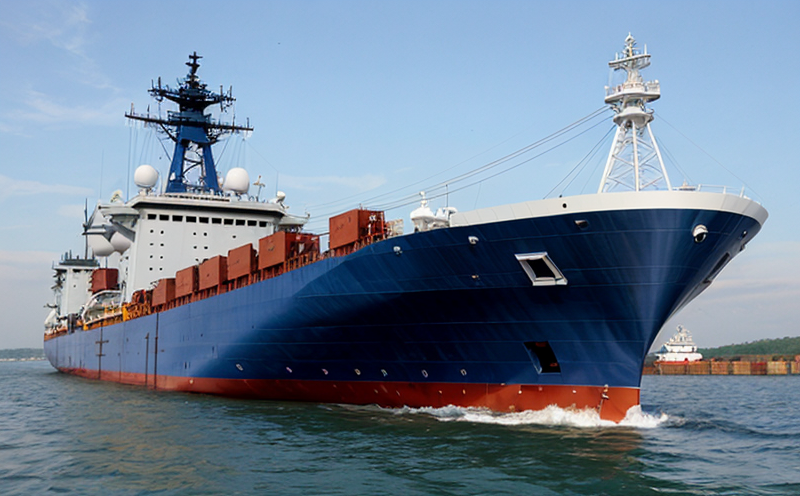Vibration Resistance of Marine Materials for Shipbuilding
The Vital Importance of Vibration Resistance in Marine Materials for Shipbuilding Why Your Business Needs It
As the maritime industry continues to evolve and grow, shipbuilders and marine material manufacturers face increasing demands to produce high-performance materials that can withstand the harsh conditions of sea travel. One critical aspect of ensuring the durability and longevity of these materials is testing their vibration resistance. Vibration Resistance of Marine Materials for Shipbuilding is a laboratory service offered by Eurolab that helps businesses navigate this complex challenge.
In this article, well delve into the world of vibration resistance testing, explaining its significance, benefits, and how it can save your business time, money, and resources in the long run. Whether youre a seasoned shipbuilder or an emerging player in the marine materials market, understanding the importance of vibration resistance is crucial for success.
What is Vibration Resistance of Marine Materials for Shipbuilding?
Vibration Resistance of Marine Materials for Shipbuilding refers to the ability of materials used in ship construction to withstand the intense vibrations caused by propulsion systems, waves, and other external factors. These vibrations can lead to material fatigue, cracking, or even catastrophic failure, resulting in costly repairs, downtime, and potential safety risks.
To mitigate these risks, Eurolabs Vibration Resistance testing service simulates real-world conditions using advanced equipment and methodologies. Our expert technicians subject samples to controlled vibration levels, measuring the materials response and determining its ability to withstand vibrations without compromising its structural integrity.
The Benefits of Using Vibration Resistance of Marine Materials for Shipbuilding
The advantages of incorporating vibration resistance testing into your quality control process are numerous
Enhanced Material Performance By identifying potential vulnerabilities in materials, you can select or modify them to ensure they meet the required standards for shipbuilding. This leads to improved material performance, reduced risk of failure, and extended lifespan.
Reduced Costs Identifying and addressing vibration-related issues early on saves your business from costly repairs, rework, and replacement. By investing in vibration resistance testing upfront, you can avoid financial burdens down the line.
Increased Safety Vibration-resistant materials reduce the likelihood of accidents caused by material failure or fatigue. This is particularly critical in the maritime industry, where safety is paramount.
Compliance with Regulations Many shipping industries and regulatory bodies require vessels to meet specific vibration standards. By partnering with Eurolab for vibration resistance testing, you can ensure your materials meet these requirements, avoiding potential fines or penalties.
Improved Quality Control Our expert technicians provide detailed reports and recommendations, enabling you to refine your material selection process and implement more effective quality control measures.
Competitive Advantage Companies that prioritize vibration resistance testing demonstrate a commitment to excellence, distinguishing themselves from competitors and establishing trust with clients.
QA Frequently Asked Questions about Vibration Resistance of Marine Materials for Shipbuilding
Q1 What types of materials are tested using Vibration Resistance of Marine Materials for Shipbuilding?
A1 Our laboratory service is suitable for various marine materials, including but not limited to metals (aluminum, steel), polymers, and composites.
Q2 How do you simulate real-world vibration conditions in the laboratory?
A2 Eurolabs expert technicians utilize advanced equipment and methodologies to replicate the complex vibrations encountered during sea travel. We can tailor our testing protocols to meet your specific needs and requirements.
Q3 What are the typical application areas for materials that undergo Vibration Resistance of Marine Materials for Shipbuilding testing?
A3 Our testing services cater to a range of applications, including shipbuilding (hulls, decks, superstructures), offshore platforms, wind turbines, and other marine structures.
Q4 How long does it take to conduct Vibration Resistance of Marine Materials for Shipbuilding testing?
A4 Testing times vary depending on the material type, sample size, and complexity of the testing protocol. Our expert technicians work efficiently to ensure you receive timely results without compromising accuracy or quality.
Q5 Can I perform vibration resistance testing in-house, or do I need specialized equipment?
A5 While its technically possible to conduct in-house vibration testing, it often requires significant investment in specialized equipment and training. Partnering with Eurolab ensures access to advanced technology, expertise, and efficient results.
Conclusion
In the world of shipbuilding and marine materials, vibration resistance is no longer a luxury its a necessity. By investing in Eurolabs Vibration Resistance of Marine Materials for Shipbuilding testing service, your business can reap the rewards of enhanced material performance, reduced costs, increased safety, and compliance with regulations.
Dont wait until its too late to address potential vibration-related issues. Trust Eurolab to provide you with expert guidance and accurate results that will help you stay ahead in a competitive market.
At Eurolab, were committed to helping your business thrive by providing cutting-edge laboratory services tailored to the maritime industrys unique demands. Contact us today to learn more about our Vibration Resistance of Marine Materials for Shipbuilding testing service and discover how it can transform your operations for the better.




